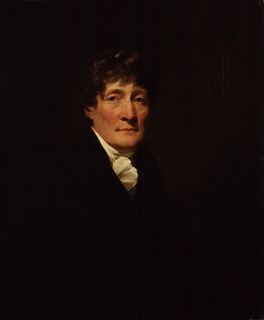A Quote by Jean de la Bruyere
False glory is the rock of vanity; it seduces men to affect esteem by things which they indeed possess, but which are frivolous, and which for a man to value himself on would be a scandalous error.
Related Quotes
When we do not know the truth of a thing, it is good that there should exist a common error which determines the mind of man, as, for example, the moon, to which is attributed the change of seasons, the progress of diseases, etc. For the chief malady of man is a restless curiosity about things which he cannot understand; and it is not so bad for him to be in error as to be curious to no purpose.
Philosophers have long conceded, however, that every man has two educators: 'that which is given to him, and the other that which he gives himself. Of the two kinds the latter is by far the more desirable. Indeed all that is most worthy in man he must work out and conquer for himself. It is that which constitutes our real and best nourishment. What we are merely taught seldom nourishes the mind like that which we teach ourselves.
There are five dangerous faults which may affect a general: recklessness, which leads to destruction; cowardice, which leads to capture; a hasty temper, which can be provoked by insults; a delicacy of honour, which is sensitive to shame; over-solicitude for his men, which exposes him to worry and trouble.
Disease is the misery of our belief, happiness is the health of our wisdom, so that man's happiness or misery depends on himself. Now, as our misery comes from our belief, and not from the thing believed, it is necessary to be on the watch, so as not to be deceived by false guides. Sensation contains no intelligence or belief, but is a mere disturbance of the matter, called agitation, which produces mind, and is ready to receive the seed of error. Ever since man was created, there has been an element called error which has been busy inventing answers for every sensation.
Commemoration of Gilbert of Sempringham, Founder of the Gilbertine Order, 1189 Some there are who presume so far on their wits that they think themselves capable of measuring the whole nature of things by their intellect, in that they esteem all things true which they see, and false which they see not. Accordingly, in order that man's mind might be freed from this presumption, and seek the truth humbly, it was necessary that certain things far surpassing his intellect should be proposed to man by God.
Indeed, I have observed one ingredient, somewhat necessary in a man’s composition towards happiness, which people of feeling would do well to acquire; a certain respect for the follies of mankind: for there are so many fools whom the opinion of the world entitles to regard, whom accident has placed in heights of which they are unworthy, that he who cannot restrain his contempt or indignation at the sight will be too often quarrelling with the disposal of things to relish that share which is allotted to himself.
...God does not possess a private knowledge of Himself and a separate knowledge of all the creatures in common. The universal Cause, by knowing Itself, can hardly be ignorant of the things which proceed from It and of which It is the source. This, then, is how God knows all things, not by understanding things, but by understanding Himself.
Ownership by delegation is a contradiction in terms. When men say, for instance (by a false metaphor), that each member of the public should feel himself an owner of public property-such as a Town Park-and should therefore respect it as his own, they are saying something which all our experience proves to be completely false. No man feels of public property that it is his own; no man will treat it with the care of the affection of a thing which is his own.
If we are made in some degree for others, yet in a greater are we made for ourselves. It were contrary to feeling and indeed ridiculous to suppose that a man had less rights in himself than one of his neighbors, or indeed all of them put together. This would be slavery, and not that liberty which the bill of rights has made inviolable, and for the preservation of which our government has been charged.
Every man is of importance to himself, and, therefore, in his own opinion, to others; and, supposing the world already acquainted with his pleasures and his pains, is perhaps the first to publish injuries or misfortunes which had never been known unless related by himself, and at which those that hear them will only laugh, for no man sympathises with the sorrows of vanity.





































